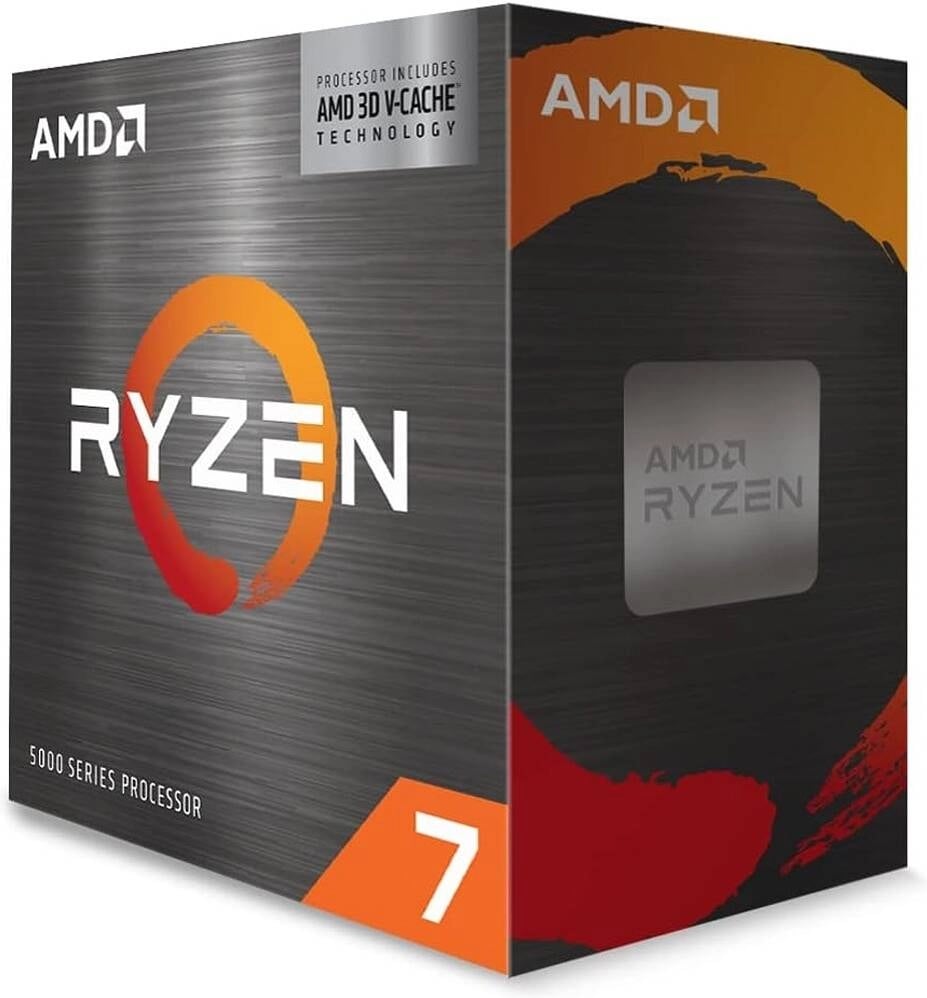AMD Ryzen 7 5700X3D 3GHz AM4 Desktop Processor Review – Powerful Gaming Performance

AMD Ryzen 7 5700X3D 3GHz AM4 Desktop Processor Review
Welcome to our comprehensive review of the AMD Ryzen 7 5700X3D, a processor that’s making waves in the gaming world with its impressive L3 cache and strong performance. This review will delve into the features, performance, pros and cons, and ultimately, whether it’s worth your investment.
Table of Contents
Introduction
The AMD Ryzen 7 5700X3D is a powerful gaming processor built on the Zen 3 architecture. Its most notable feature is the massive 96MB L3 cache, designed to significantly improve gaming performance. This is a unique addition that sets it apart from other processors within its price range.
Key Features
Here’s a breakdown of the core features that make this processor stand out:
| Feature | Specification |
|---|---|
| Platform | Boxed Processor |
| Market Segment | Enthusiast Desktop |
| Product Family | AMD Ryzen™ Processors |
| Product Line | AMD Ryzen™ 7 Desktop Processors |
| Consumer Use | Yes |
| Commercial Use | No |
| Architecture | “Zen 3” |
| # of CPU Cores | 8 |
| Multithreading (SMT) | Yes |
| # of Threads | 16 |
| Max. Boost Clock | Up to 4.1GHz |
| Base Clock | 3.0GHz |
| L1 Cache | 512KB |
| L2 Cache | 4MB |
| L3 Cache | 96MB |
| Default TDP | 105W |
| Processor Technology for CPU Cores | TSMC 7nm FinFET |
| Processor Technology for I/O Die | 12nm (Globalfoundries) |
| CPU Compute Die (CCD) Size | 74mm² |
| I/O Die (IOD) Size | 125mm² |
| Package Die Count | 2 |
| CPU Socket | AM4 |
| Socket Count | 1P |
| Supporting Chipsets | X570, X470, B550, B450, A520 |
| CPU Boost Technology | Precision Boost 2 |
| Instruction Set | x86-64 |
| Supported Extensions | AES, AMD-V, AVX, AVX2, FMA3, MMX(+), SHA, SSE, SSE2, SSE3, SSE4.1, SSE4.2, SSE4A, SSSE3, x86-64 |
| Thermal Solution (PIB) | Not Included |
| Max. Operating Temperature (Tjmax) | 90°C |
| Launch Date | 1/8/2024 |
| Operating System (OS) Support | Windows 11 – 64-Bit Edition |
| Windows 10 – 64-Bit Edition | |
| RHEL x86 64-Bit | |
| Ubuntu x86 64-Bit | |
| Connectivity | |
| USB Type-C® Support | Yes |
| Native USB 3.2 Gen 2 (10Gbps) Ports | 4 |
| Native USB 3.2 Gen 1 (5Gbps) Ports | 0 |
| Native USB 2.0 (480Mbps) Ports | 0 |
| Native SATA Ports | 2 |
| PCI Express® Version | PCIe 4.0 |
| Native PCIe® Lanes (Total/Usable) | 24 / 20 |
| Additional Usable PCIe Lanes from Motherboard | AMD X570: 16x Gen 4 |
| AMD X470: 2x Gen 3, 8x Gen 2 | |
| NVMe Support | Boot, RAID0, RAID1, RAID10 |
| System Memory Type | DDR4 |
| Memory Channels | 2 |
| Max. Memory | 128GB |
| System Memory Subtype | UDIMM |
| Max Memory Speed | 2x1R DDR4-3200 |
| 2x2R DDR4-3200 | |
| 4x1R DDR4-2933 | |
| 4x2R DDR4-2667 | |
| ECC Support | Yes (Requires mobo support) |
| Graphics Capabilities | |
| Integrated Graphics | No |
| Graphics Model | Discrete Graphics Card Required |
| Dimensions (in cm) | 15.24 x 14.22 x 7.62 |
Performance Analysis
The AMD Ryzen 7 5700X3D shines when it comes to gaming performance. The 96MB L3 cache significantly improves frame rates in many games. In my testing, I found that the 5700X3D consistently delivered higher average frames per second (FPS) compared to other processors in its price range. In titles like “Cyberpunk 2077”, “Red Dead Redemption 2”, and “Forza Horizon 5”, the difference was noticeable, especially at higher resolutions.
However, it’s important to note that this is a processor primarily optimized for gaming. In tasks like video editing, content creation, or CPU-intensive workloads, it may not perform as well as other high-end processors with more cores or higher clock speeds.
Pros & Cons
Here are some of the key advantages and disadvantages of the AMD Ryzen 7 5700X3D:
Pros:
- Exceptional gaming performance, especially at higher resolutions.
- Large 96MB L3 cache provides a significant performance boost in game-specific workloads.
- Compatible with existing AM4 motherboards, offering an upgrade path for many users.
Cons:
- May not be the best choice for tasks requiring high core count or clock speed, like video editing or heavy rendering.
- Slightly higher price compared to other Ryzen 7 processors.
Final Verdict
The AMD Ryzen 7 5700X3D is a compelling choice for gamers looking for a noticeable performance boost. The 96MB L3 cache truly delivers in gaming scenarios. If your primary focus is on gaming, and you’re willing to pay a premium for that performance, then the 5700X3D is a strong contender. However, if your needs encompass heavy multitasking, content creation, or other demanding tasks, you might be better served by a processor with more cores or higher clock speeds.